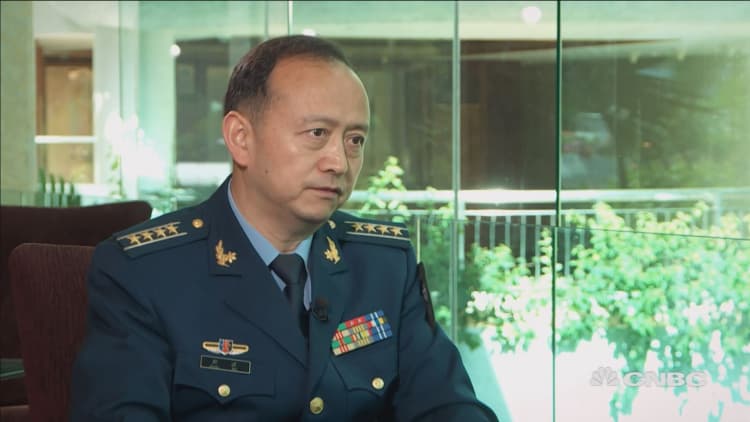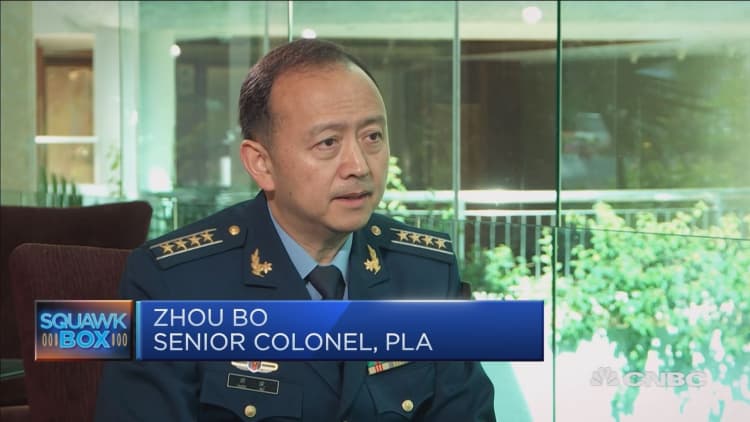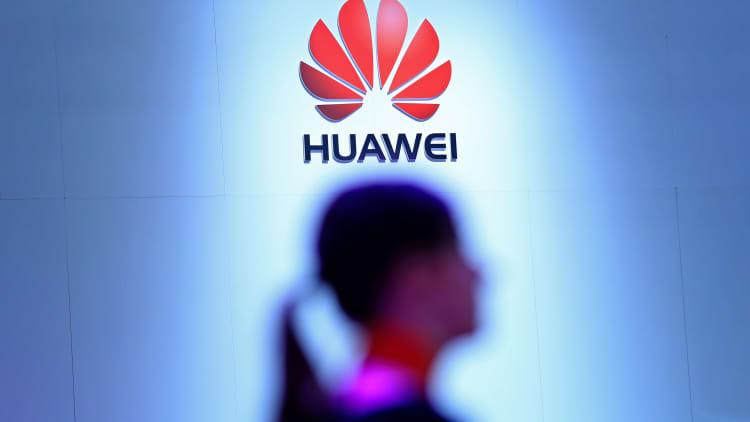
A high-level colonel in the Chinese military admits there's a possibility of a "miscalculation" in the South China Sea, but defended China's "need" to protect what Beijing deems as its territory.
Zhou Bo, a senior colonel of the People's Liberation Army (PLA) said that "China does need to have necessary defense of these islands and rocks which we believe are Chinese territory."
"We don't believe that they are artificial islands," he told CNBC's Sri Jegarajah on Sunday at the Shangri-La Dialogue, a three-day security forum held in Singapore.
South China Sea dispute
China has staked its claims on a massive section of the resource-rich South China Sea that extends roughly 1,000 miles from its southern shores. Parts of the waterway — one of the world's busiest — have also been claimed by the Philippines, Vietnam, Taiwan, Malaysia and Brunei.
At the annual Shangri-La Dialogue, the U.S. and China sparred over a range of issues from contested territory in the South China Sea to the ongoing trade dispute between the world's two largest economies. The annual event has in recent years become a diplomatic battleground between the two economic powerhouses as they vie for geopolitical influence.
During the summit, acting Defense Secretary Patrick Shanahan said the U.S. will no longer "tiptoe" around Chinese behavior in Asia. Washington has consistently warned Beijing against the militarization of artificial features in the disputed waters.

But Zhou defended China, saying: "If they are just artificial islands built out of (the) blue, why do they have Chinese names even long time ago? We didn't name these rocks and islands in the last three years, right? So that is self-evident."
Zhou said that ships from both sides sometimes get dangerously close and acknowledged: "Of course there is a danger of miscalculation."
He added, however that "in spite of this it is the good wish of the both sides not to lead to any accidents (happening), let alone spill into conflict."
"A common point between China and the United States is that both of them agree to freedom of navigation, but they disagree as to what it means," Zhou said.
Unfair to 'bash' Huawei
Addressing the situation surrounding Huawei recently, Zhou said he didn't think the Chinese telecommunications giant was a security threat to the U.S.
"We think this is really unfair for the United States to bash such a Chinese company with such heavy weight and volume," said Zhou.
"First of all, it's just a commercial company. As a CEO said, if you like China's Huawei product, you buy it, if you like Apple, you buy it. So it's just a normal product," he said.
"And so far in spite of all the inquiries or interest in Huawei for the so-called back door issue, no one has really find such a issue. So I believe, just leave it to the market and leave it to the experts...," he said.
As to arguments that Huawei CEO Ren Zhengfei has military links, Zhou said that argument was not justified. Ren was a former serving officer in the Chinese army.
"Ren Zhengfei is just the one of more than millions of people who have retired from PLA and who had to seek another job. But because of when he retired from the PLA, he was not so senior — even not as senior as I am — so he has to find a find a job," said Zhou.
Watch: Why the US thinks Huawei has been a national security threat for years


